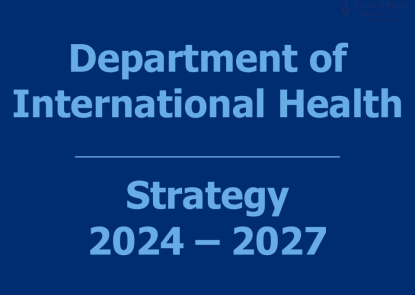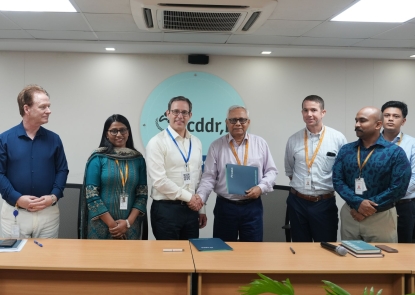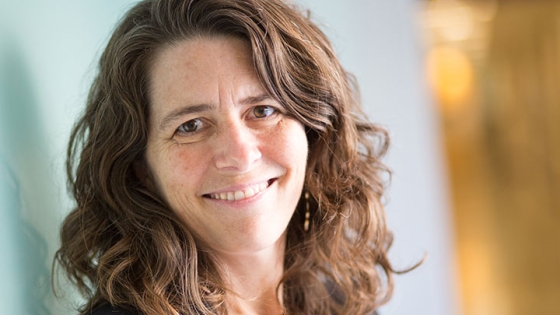
International Health
We are committed to improving the health, nutrition, and well-being of the world’s most disadvantaged people with cutting-edge science, responsive and innovative public health practice, educational programs, and focused capacity building.
What's New in the Department of International Health

Strategy 2024
We are excited to launch the Department’s 2024 – 2027 Strategic Plan. Priority areas include 1) reinforcing areas of strength and aligning our research and education priorities with the most pressing existing and emerging global health issues 2) tackling persistent operational inefficiencies to positively impact our ability to deliver on our mission, and 3) strengthening our approach to partnership to ensure we focus on long-term, equitable, mutually beneficial partnerships to achieve global impact.

icddr,b and the Department of International Health
In the third edition of the Department of International Health Legacy Series, Dr. Tahmeed Ahmed, Executive Director of icddr,b, discusses the shared history of icddr,b and the Department and how we can build upon that collaboration to help save more lives around the world.
International Health Headlines


Climate Change’s Psychological Impact
Extreme weather is amplifying mental health crises across the world. Solutions are needed now.

International Health Faculty Investigate the Role of Probiotics in Child Growth and Survival
Department of International Health faculty are collaborating with the WHO and colleagues in sub-Saharan Africa and Asia on two new projects investigating probiotic use in newborns and children in low- and middle-income settings
What We Do in the Department of International Health
The Department of International Health is a global leader and partner in identifying, developing, testing, and implementing practices and policies that help the world’s most vulnerable and disadvantaged people improve their health and well-being. We work directly and collaboratively with communities, scientists, public health practitioners, and policymakers around the world to understand their needs and support changes to improve health globally.
International Health Highlights
First
academic program in international health (1961)
Largest Department in Global Health
over 300 full-time faculty working across the globe
Global Network
have worked in over 90 countries on 6 continents
Publications
500+ peer-reviewed articles published a year

International Health Programs
The Department of International Health is organized into four program areas: Global Disease Epidemiology and Control; Health Systems; Human Nutrition; and Social and Behavioral Interventions.
We offer a Master of Science in Public Health (MSPH) and doctoral-level training for research (PhD) in these program areas, as well as a Master of Health Science in Health Economics (MHS). We also offer many continuing education programs online and on campus.
Master of Health Science (MHS) in Global Health Economics
The MHS in Global Health Economics is a nine-month program that provides students with the skills necessary to use economic tools in the promotion of healthy lifestyles and positive health outcomes. Students will learn how to develop health systems that promote equitable access to care, using applied health cases from around the world.
Master of Science in Public Health (MSPH)
The MSPH training program is intended for students who wish to pursue a professional career in the field of public health. Some prior health and/or international experience is preferred.
Doctor of Philosophy (PhD)
The PhD prepares students to become independent investigators in academic and non-academic research institutions, and emphasizes contributions to theory and basic science.
Centers, Institutes, and Initiatives in the Department of International Health
The Department is home to a number of centers, institutes, and initiatives that allow faculty from the Department, the University, and the world to collaborate directly on specific global health issues.
Center for Global Digital Health Innovation
Center for Human Nutrition
Center for Humanitarian Health
Center for Indigenous Health
Center for Immunization Research
Center for Implementation Research & Practice
Institute for International Programs
Institute for Vaccine Safety
International Center for Maternal & Newborn Health
International Vaccine Access Center (IVAC)
Johns Hopkins International Injury Research Unit (IIRU)
Johns Hopkins Vaccine Initiative
The IDEA Initiative
Melissa A. Marx, PhD,
evaluates maternal, child, and infectious disease programs, and has led response efforts for outbreaks including SARS, Ebola, and COVID-19.

Upcoming Events
Support Our Department
Support students and promote International Health research, make a donation today.
